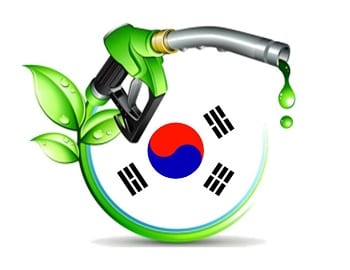South Korea works to make hydrogen fuel cells more attractive
December 16, 2015Demand for fuel cell vehicles is skyrocketing throughout South Korea, thanks to companies like Hyundai
The demand for fuel cell vehicles has been growing quickly in South Korea, where one of the world’s leading automakers, Hyundai, offers such vehicles. Now, South Korean government is beginning to focus on making these vehicles more affordable, thereby making them more accessible to consumers interested in clean transportation. The government is also working on bolstering the country’s hydrogen fuel infrastructure, which is needed in order for fuel cell vehicles to find continued success in South Korea.
Government aims to reduce the cost of fuel cell vehicles by a significant margin by 2018
The government has launched a new initiative to reduce the cost of fuel cell vehicles from $71,900 to approximately $25,300 by 2018. The government believes that reducing the cost of fuel cell vehicles will make them more competitive with their conventional counterparts. Fuel cell vehicles already receive subsidies in South Korea, which have reduced their overall price, but the government is working to make these subsidies more available to a wider range of consumers.
Reducing the cost of hydrogen fuel cells may make fuel cell vehicles more attractive to consumers
 The government is also making an effort to help automakers reduce the production costs associated with fuel cell vehicles. Hydrogen fuel cells are notoriously expensive, largely due to their use of platinum. As fuel cells become less expensive, automakers are likely to bring down the cost of the vehicles naturally. In the future, fuel cell vehicles may no longer need to rely on government subsidies as a result.
The government is also making an effort to help automakers reduce the production costs associated with fuel cell vehicles. Hydrogen fuel cells are notoriously expensive, largely due to their use of platinum. As fuel cells become less expensive, automakers are likely to bring down the cost of the vehicles naturally. In the future, fuel cell vehicles may no longer need to rely on government subsidies as a result.
South Korea aims to have 520 hydrogen fuel stations in operation by 2030
Government officials believes that there will be 80 hydrogen fuel stations in operation by 2020. The number of stations serving consumers is expected to reach 520 by 2030. The country is working on aggressively expanding its hydrogen fuel infrastructure in the hopes of establishing a very powerful lead in the clean transportation market. Clean transportation is meant to play a major role in the country’s ongoing efforts to reduce harmful emissions and become more environmentally friendly.

 With over 15 years of reporting hydrogen news, we are your premier source for the latest updates and insights in hydrogen and renewable energy.
With over 15 years of reporting hydrogen news, we are your premier source for the latest updates and insights in hydrogen and renewable energy.